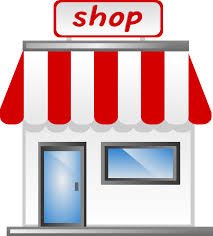The Problem with Shop Local Campaigns
.jpg)
Aspire CQ
Warren Acutt
DO "SHOP Local'' campaigns work? It was a question asked of me last week. After some thought I said, "if done well".
After all, the motivation behind a Shop Local campaign is to get more money circulating within a community to stimulate job growth, investment, greater variety of offerings; all integral to the continual strength of a community.
If done well this message should trigger sufficient locals to consider and change where they make their purchases.
When pressed on what "done well'' meant, I asked what he considered to be local.
The response was basically brick and mortar retail shops.
Some locally owned, some franchisees and some multi-nationals.
All have a store presence in Rockhampton, all hire locals, all offer a variety of offerings and all have made an investment here, thus all rightfully considered a local business. But does everyone see it this way?
Is the Sunday afternoon trip to Bunnings a local buy?
Getting the bread and milk at Woolies a local buy? How many stores in Stockland do you identify as "local''?
And what about non-retail businesses? Ones that operate from offices, homes, or purely online. Shouldn't they also be included in a Shop Local campaign? Don't address these issues and a Shop Local campaign isn't being built on a good platform.
Then there is the convenience of shopping on the internet to tackle.
You can encourage locals to search for local stores with online shopping facilities, but the better resourced internationals can turn that intention around. If you haven't already, Google Dick Smith's rant about online accommodation booking sites; it highlights the challenges family-run businesses encounter trying to improve their online rankings (and to make a profit).
And if a trip for a northsider to Stockland is more convenient than going to East Street to buy a dress, is this considered a shop local success, as it wasn't bought online?
https://www.mawread.com/2018/09/the-problem-with-shop-local-campaigns.html